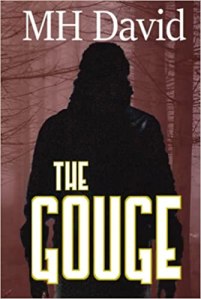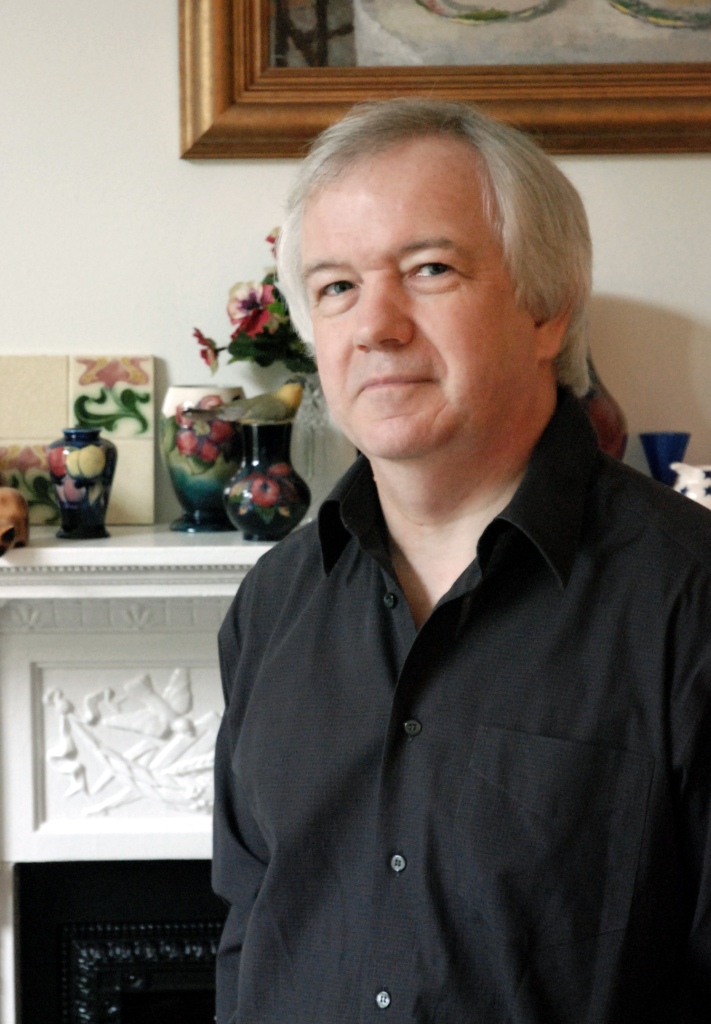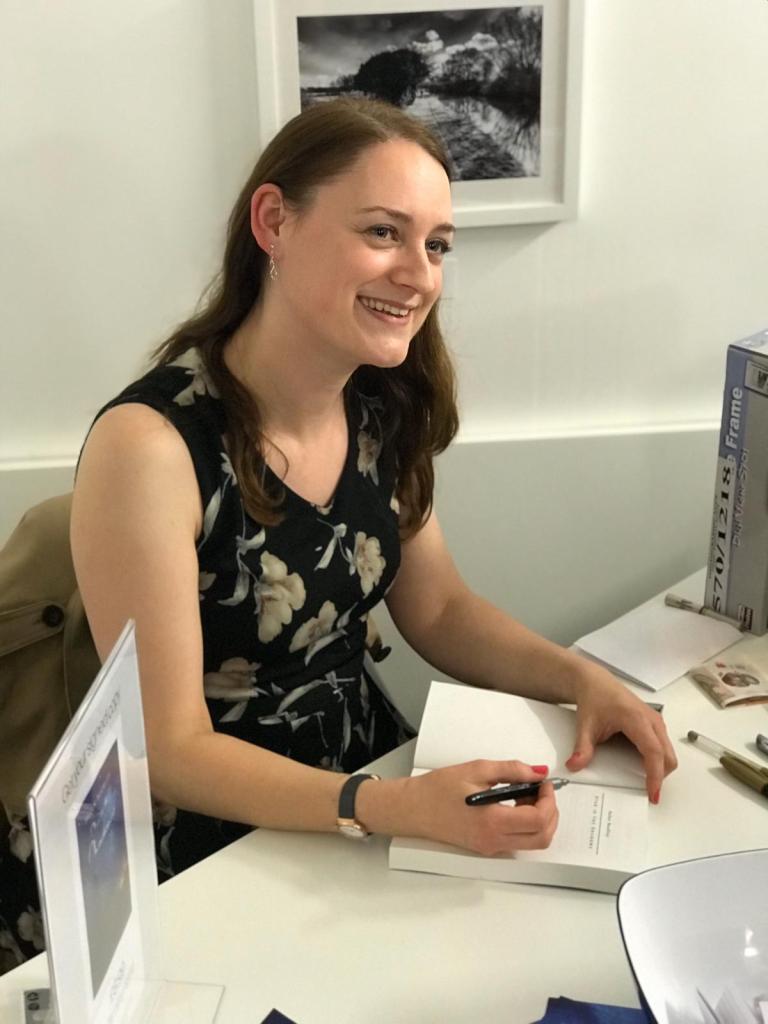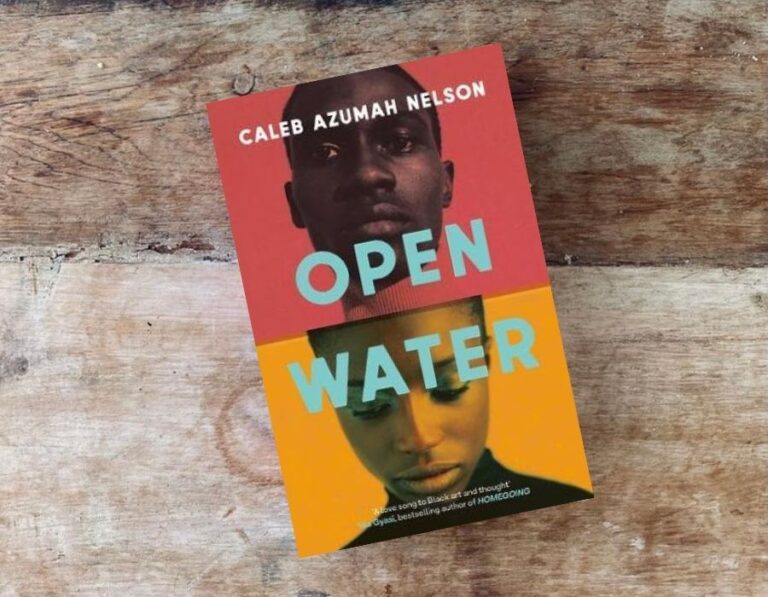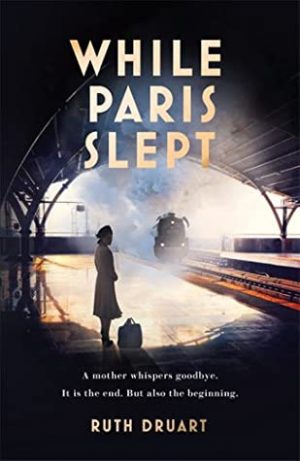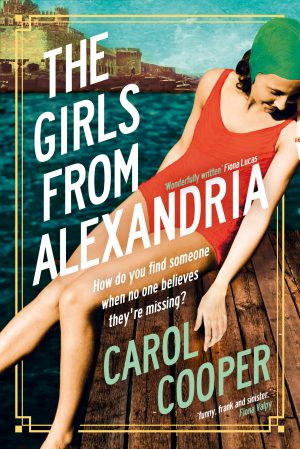
Here, the sea was deep azure in colour. How could grown-ups not want to fling themselves into the waves and go for a swim, or just jump in and out of the sparkling foam, as Simone and I did for hours? Called Sidi Bishr Two, this beach had a string of cabins all along the edge, many of them belonging to our friends. Uncle Selim, who wasn’t a real uncle, didn’t have a cabin of his own. Instead he would join us and lounge on a chair in his white trousers, straw hat, and special shoes. Handmade in England, he reminded us. His glasses were so dark that I couldn’t tell if he was looking at my swimsuit or at something else. In haste, I threw a towel around me and went back to building sandcastles, which pleased me and which everyone else ignored.
Nadia needs help. Help getting out of her hospital bed. Help taking her pills. One thing she doesn’t need help with is remembering her sister. But she does need help finding her.
AUTHOR LINKS
Despite being told she’s ‘confused’ and not quite understanding how wi-fi works, Nadia is determined to find Simone. So with only cryptic postcards and her own jumbled memories to go on, Nadia must race against her own fading faculties and find her sister before she herself is forgotten.
It seemed unfair that one of our servants, usually Abdou because he was stronger than toothless old Ibrahim, had to lug a block of ice to the beach cabin, break it up with a pick to keep our drinks cool, then spend his time looking after us instead of enjoying himself. Displaying one gold tooth, he always said, ‘Maalish.’ It means never mind.
| Publisher: | Agora Books |
| Available in: | Ebook, Audio (1 April 2021) |
| Page Count: | 340 |
Today my aunts, who were very real, arrived wearing matching scarves. Even if they had seen Mother less than an hour previously, they always found something to talk about, rattling away in the usual mix of French and Arabic, with some English words sprinkled on top. Everyone we knew spoke at least three languages. You were hardly Alexandrian if you didn’t talk with your hands and leap constantly from one language to another, mid-sentence or not. Rashida, the Lebanese da-da whose job was to look after Simone and me, rarely came to the beach. She was too busy at home doing essential things like stuffing vine leaves and praying to St Anthony.
‘You’re pointing straight at Cyprus.’
‘Don’t stare,’ Simone hissed.
ABOUT THE AUTHOR
It was impossible not to stare. Zouzou was unbelievably old, maybe thirty, and she chewed gum with a wide painted mouth like the film stars at the Rialto. Simone and I made fun of Zouzou, but, at bathtime, I once caught Simone trying to perfect the exact same hip wiggle.
CHAPTER 1 EXTRACT
Although it was June, it wasn’t hot. Even when it was baking downtown, a stiff breeze from the sea swept the shore, the very same breeze that kept Alexandria at the perfect temperature and made you unaware that you were getting burnt. Every so often, Mother looked up from her Réforme Illustrée and called out, ‘Ton chapeau, Nadia,’ to remind me to put my pink sun hat back on. My swimsuit was still wet, but my shoulders already tingled. I got a cold Spathis from Abdou’s icebox and pressed the bottle on to my hot skin before I downed the fizzy drink.
When I next looked up from my sandcastle, Mother was still deep in conversation with her sisters and Father had nodded off. Simone’s sketch pad was still under the parasol, but she wasn’t. She wasn’t by the water’s edge either. She wasn’t anywhere. Blood drained from my face. In fact, it drained from my entire body.
Being two years older than me, Simone knew everything. She taught me how to make sandcastles almost as tall as hers. She was a better swimmer than me too, and boasted that she could have swum out to the little island if she’d wanted to, just as older boys did to show off. It was less than a mile, she said. I hoped she wouldn’t try. Even at the age of seven, I was afraid of losing her. Without her, I was bound to fade and perish like a newspaper in the sun. I knew I would.
Carol Cooper is a doctor, journalist, and author. Born in London, she was only a few months old when her cosmopolitan family took her to live in Egypt. She returned to the UK at eighteen and went to Cambridge University where she studied medicine and her fellow students. On her path to a career in general practice, she worked at supermarket checkouts, typed manuscripts in Russian, and spent years as a hospital doctor.
ALEXANDRIA, JUNE 1953
Once our deckchairs and parasol were up, Father installed himself behind an Arabic newspaper while Mother read La Réforme Illustrée, paying special attention to the accounts of who had worn what at whose party. I squinted against the sun and made out the date in the top right corner of Al Ahram. ١٩٥٣ may look like 1907 gone wrong, but it’s Arabic for 1953.
Alone and abandoned in a London hospital, 70-year-old Nadia is facing the rest of her life spent in a care home unless she can contact her sister Simone… who’s been missing for 50 years.
My thanks to Peyton of Agora Books for inviting me to take part in the blog tour for The Girls from Alexandria and for providing the extract for my spot today.
‘Yorkshire’s over there, where Miss Brownlee was born,’ I informed Simone.
‘Memories are fragile when you are seventy years old. I can’t afford to lose any more of them, not when remembering the past might help with the here and now.’
Carol lives with her husband in Cambridge and Hampstead. She has three grownup sons and three stepchildren.
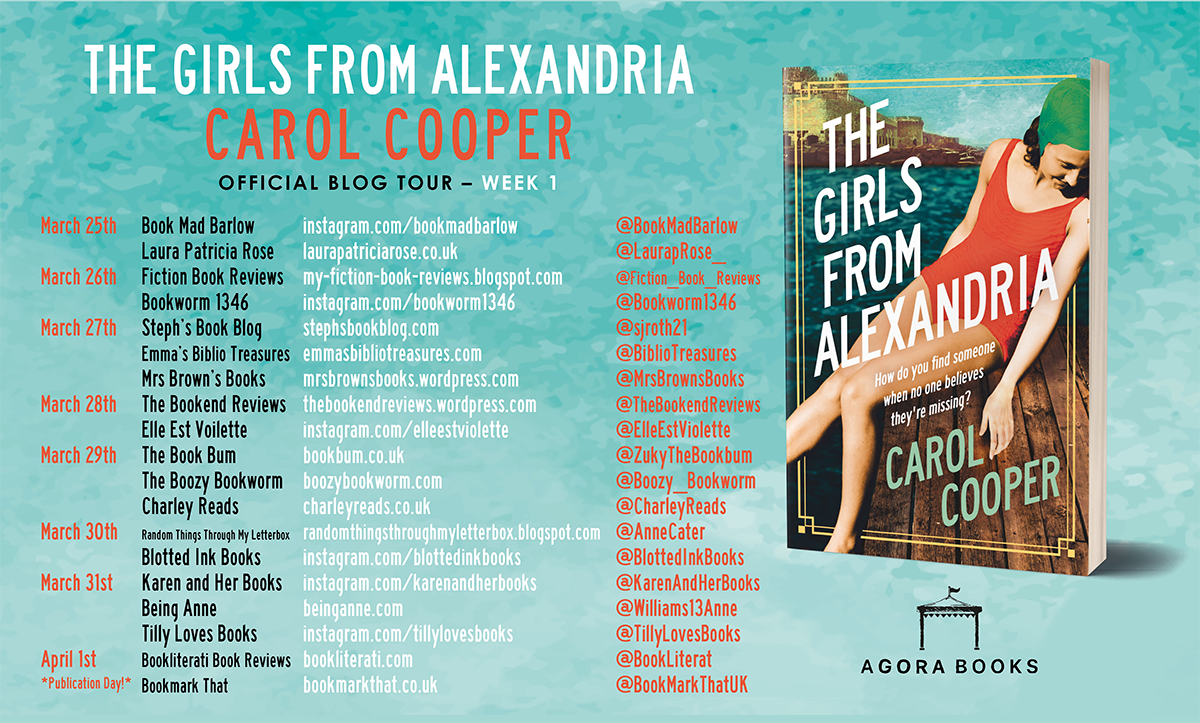
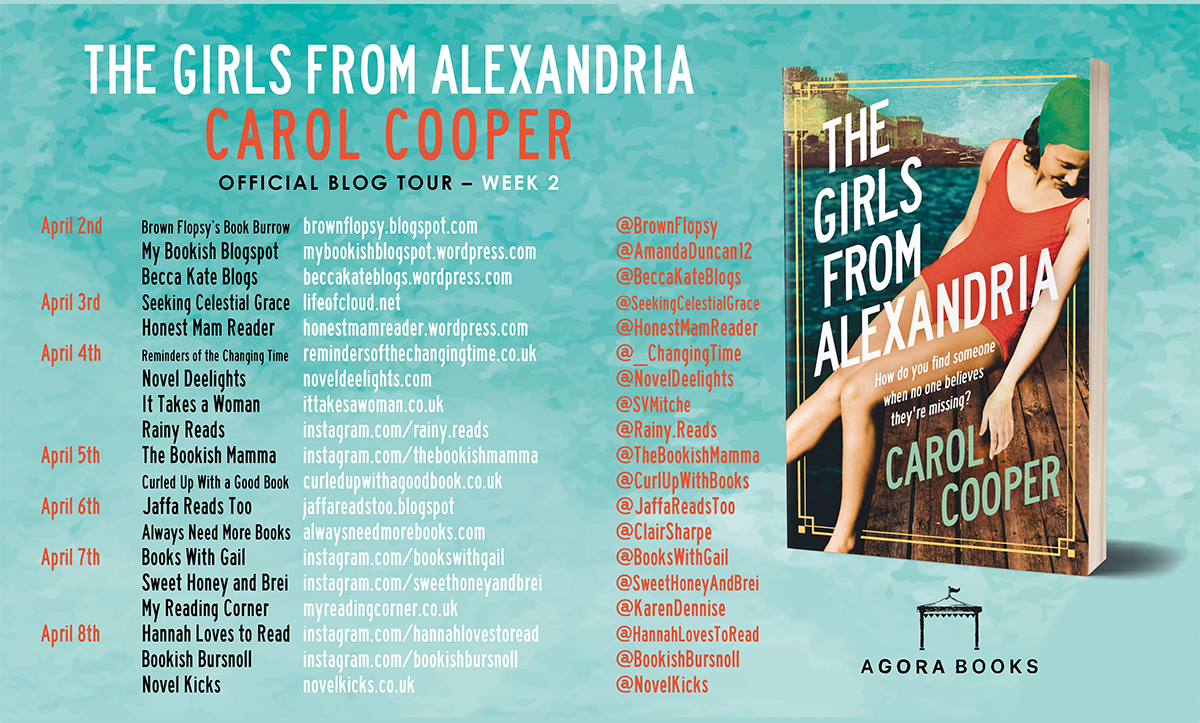
Simone sat drawing under the parasol. ‘Look. There goes Zouzou again.’
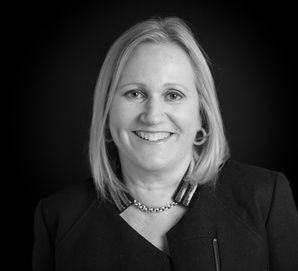
Following a string of popular health books as well as an award-winning medical textbook, Carol turned to writing fiction. Her first two novels were contemporary tales set in London. Ever a believer in writing what you know, she mined the rich material of her childhood for The Girls from Alexandria.
Set against the lush and glamorous backdrop of 20th century Alexandria, Carol Cooper’s The Girls from Alexandria is equal parts contemporary mystery and historical fiction: a re-coming of age story about family, identity, and homeland.
Zouzou strolled up and down, chewing Chiclets and wiggling her bottom in yet another swimsuit. She was part Italian, part Egyptian, and maybe part French or Austrian. In Alex, it was normal for everyone to be part something, with all the parts jumbled up.
Along to the east rose the rocky outcrop of the automobile club, while across the sea in front of me lay countries like England where many of my schoolteachers and schoolfriends came from.

